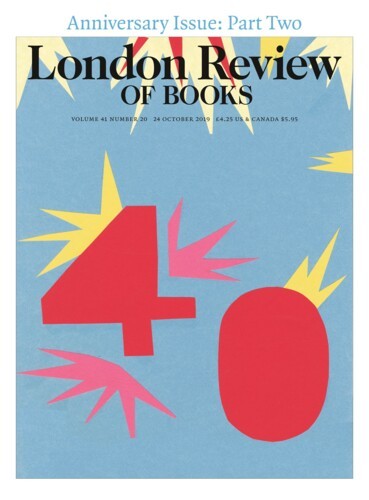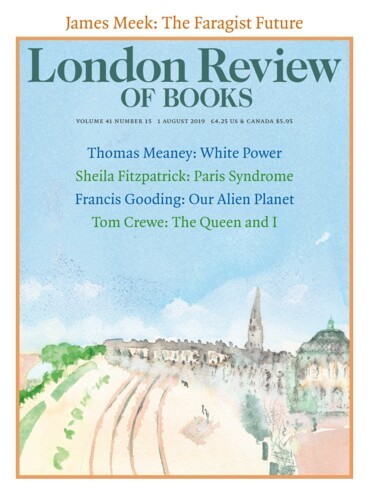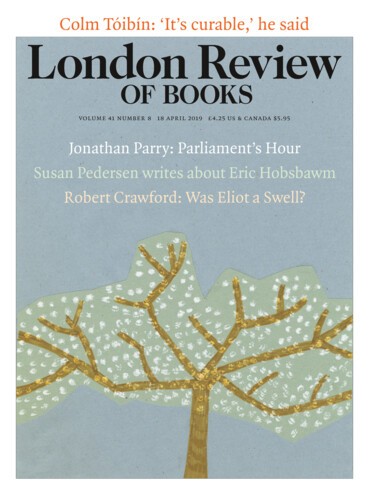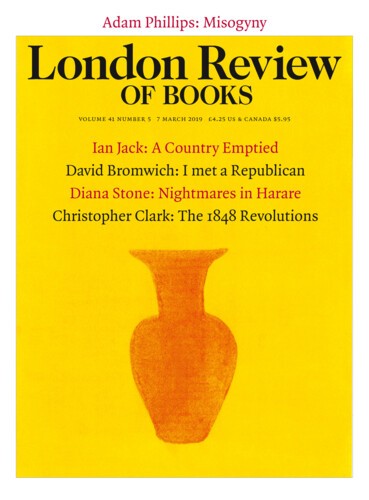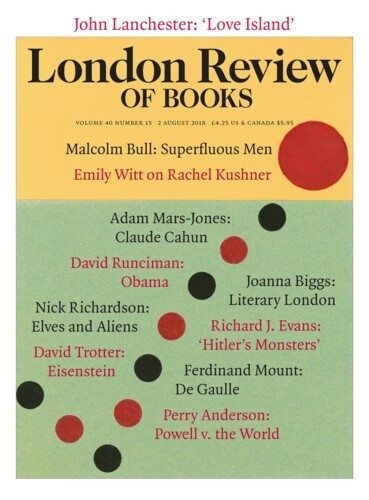Short Cuts: Alexander Hamilton’s Worst Idea
David Bromwich, 24 October 2019
On 6 October, Donald Trump made a phone call to Recep Erdoğan signalling the withdrawal of around two hundred US troops who were protecting Kurdish soldiers in northern Syria. Trump announced that he would soon make room for Turkey to clear the area and create the buffer zone Erdoğan had long wanted to impose against a hostile political entity. This sudden declaration was doubtless...
